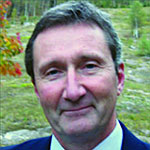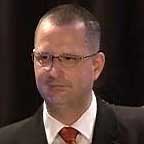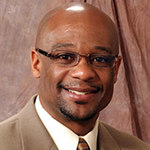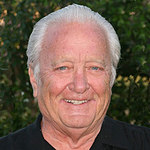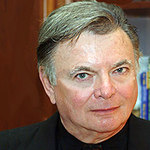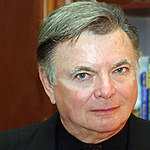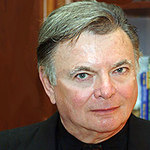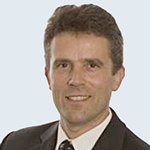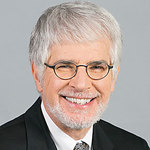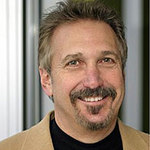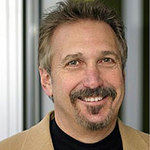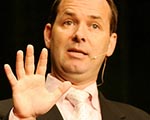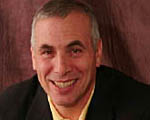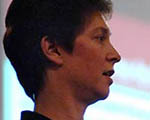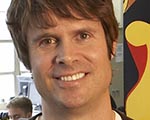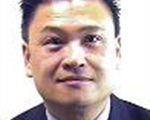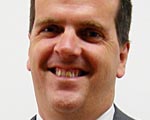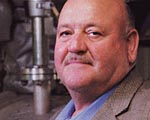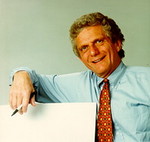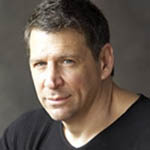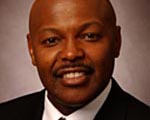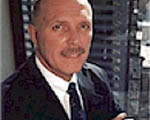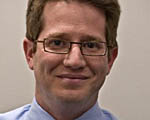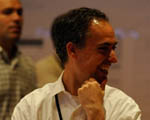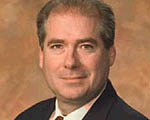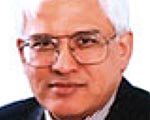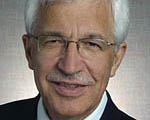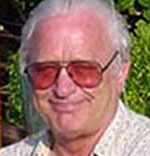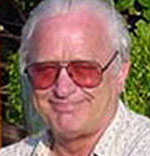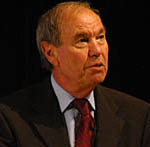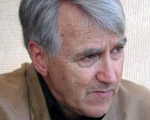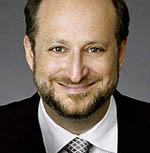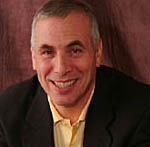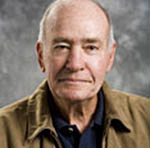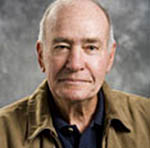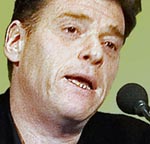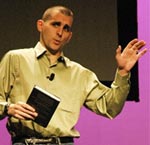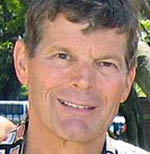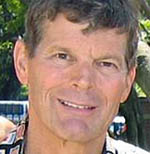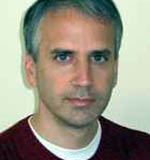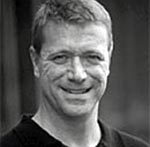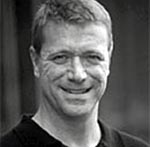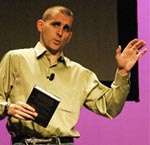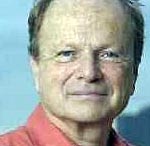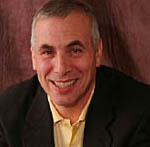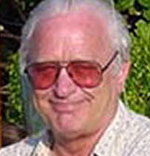INTERVIEWS
and Articles with Corporate Innovators
The Innovation Journey that Led to the Bose Ride System
Jim Parison on developing the Bose Ride SystemBy Paul Arnold
Bose Corporation may be best known for high-performance audio equipment, but its research, technologies and innovations go far beyond sound.
Doing Things Much Better than the Way they are Currently Being Performed
Interview with Rajiv Vaid BasaiawmoitBy Paul Arnold
Rajiv Vaid Basaiawmoit is Head of Open Innovation at the AU-Centre for Entrepreneurship & Innovation at Denmark’s Aarhus University.
Employing Open Innovation to Create the Future of Dairy
An interview with Harry Barraza, head of Open Innovation at Arla FoodsBy Paul Arnold
At Arla Foods, a farmer owned dairy company headquartered in Denmark, innovation starts with milk and the cows and extends through the entire value chain.
It’s Only Logical to Apply Open Innovation Methods
Interview with Timo von BargenBy Paul Arnold
Timo von Bargen is Open Innovation Manager at Clariant, a world leading specialty chemicals company, who have been leveraging open innovation with the aim of speeding up time to market of existing innovation projects and identifying new business opportunities.
Individual Innovators Cannot Compete with a Group Going Through the Creative Problem Solving Process
Interview with Wayne FisherBy Paul Arnold
For more than 25 years, Wayne Fisher worked for Procter & Gamble in a variety of Corporate R&D and Business Unit roles.
Every Problem Can Be Solved
Interview with Olga PatelBy Paul Arnold
Olga Patel is a dynamic business leader who’s held prominent positions in several multinationals, helping to drive their business growth through innovation.
Small Groups Working Together is Where the Magic Happens
Interview with Peter KraghBy Paul Arnold
Peter Kragh uses his expertise in open and user innovation to help organizations and companies develop breakthrough products and business concepts.
The Beauty of Crowdsourcing is Being Completely Agnostic to a Solution
Interview with Eugene IvanovBy Paul Arnold
Eugene Ivanov is an Innovation Management Consultant who helps organizations of all sizes increase their efficiency through internal and external innovation programs, particularly with crowdsourcing campaigns.
Syngenta Mathematical Crop Challenge
Interview with Joseph ByrumBy Paul Wagorn
We spoke with Joseph Byrum of Syngenta to talk about the Syngenta Crop Challenge.
IdeaConnection Solvers Provide Solutions to Arsenic Contamination of Groundwater
“Ideas that could potentially be groundbreaking.” Steve Chambreau, Co-founder of Chemists Without BordersBy Paul Arnold
The World Health Organization (WHO) has described arsenic contamination of groundwater in Bangladesh as the “largest mass poisoning of a population in history”.
The Smartest Are Not Us
Interview with Alan Gregerman, Author of The Necessity of Strangers, Surrounded by Geniuses, and Lessons from the Sandbox, Part 2By Vern Burkhardt
‘What we should believe is that “it’s not whom you know but whom you could know” that determines our success.’ The Necessity of Strangers, page 16
Expertise — Asset or Liability?
Interview with Alan Gregerman, Author of The Necessity of Strangers, Surrounded by Geniuses, and Lessons from the Sandbox, Part 1By Vern Burkhardt
“In a world where it is estimated that knowledge is now doubling every twelve months, we should be way more humble and way more open to the ideas and insights of others.
Wild Cards, Boiling Frogs, and Elephants in the Room
Interview with Alan Iny, Co-author with Luc De Brabandere of Thinking in New Boxes, Part 2By Vern Burkhardt
'Sometimes when everything superficially appears to be moving along just perfectly, the truth is that you are a “sitting duck.”’ Thinking in New Boxes, page 196
Not the Hammer’s Fault
Interview with Alan Iny, Co-author with Luc De Brabandere of Thinking in New Boxes, Part 1By Vern Burkhardt
“We believe the story of creativity is an epic of freedom. You have to be free in order to create, but you must first recognize you are a prisoner in order to break free.
Inventive Principles Illustrated, Part 5
Interview with Jack Hipple, Author of The Ideal Result: What It Is and How to Achieve ItBy Vern Burkhardt
“…a physical contradiction …is frequently the root cause of the conflict between parameters. It sometimes takes more thinking time to think about this and identify a specific physical property that is at the root cause of the conflict.
Inventive Principles Illustrated, Part 4
Interview with Jack Hipple, Author of The Ideal Result: What It Is and How to Achieve ItBy Vern Burkhardt
“Consider your current product or business. Go through each of the 40 principles and spend some serious time considering how each could improve your process, product, or business.” The Ideal Result: What It Is and How to Achieve It by Jack Hipple, page 103.
Inventive Principles Illustrated, Part 3
Interview with Jack Hipple, Author of The Ideal Result: What It Is and How to Achieve ItBy Vern Burkhardt
“Whenever you are involved in a product or process design issue, make sure you have defined it in terms of a contradiction, not just making something ‘better’. Focus the meeting in terms of what the contradiction(s) is or are.
I Like the Diversity of Skillsets Working on My Problem
Case Study of IdeaConnection client Ben Barrow.By Paul Arnold
IdeaConnection’s interdisciplinary teams of experts work collaboratively over short and intense periods to provide world class scientific and engineering solutions and insights. In 2013, project manager Ben Barrow approached us looking for an innovative water storage solution.
Inventive Principles Illustrated, Part 2
Interview with Jack Hipple, Author of The Ideal Result: What It Is and How to Achieve ItBy Vern Burkhardt
“Some TRIZ software vendors have subdivided these [40] principles and will claim that there are 70, 160, or as many as 400 principles, so make sure that when discussing TRIZ inventive principles with someone that you are having an ‘apples and apples’ discussion.
Inventive Principles Illustrated, Part 1
Interview with Jack Hipple, Author of The Ideal Result: What It Is and How to Achieve ItBy Vern Burkhardt
“In the analysis of millions of patents, we find that there are a limited number of inventive principles that are constantly reused, across virtually all areas of technology and business, to solve the same contradictions that reoccur in all areas.”
Something that Does Not Exist
Interview with Jack Hipple, Author of The Ideal Result: What It Is and How to Achieve It, Part 2By Vern Burkhardt
“The real challenge is not to use anything in the first place.” “…isn’t that what engineers get paid to do – design things to add to systems that will solve some kind of problem created by some aspect of the current process or system?
Inventive Problem Solving
Interview with Jack Hipple, Author of The Ideal Result: What It Is and How to Achieve It, Part 1By Vern Burkhardt
Your attitude, when you start a personal innovation journey or try to implement one inside an organization, is critical. You must ask about your attitude toward newness, your attitude toward threats to your business, and your attitude toward thinking about things...
The Lions are Coming
Interview with Gijs van Wulfen, Author of The Innovation Expedition – Part 2By Vern Burkhardt
“Organizations innovate continuously. At least, that’s what they say. There is a difference between what they say and what they really do. Of course there is a department continuously working on new concepts.
Never Bet on One Horse
Interview with Gijs van Wulfen, Author of The Innovation Expedition – Part 1By Vern Burkhardt
“Don’t just do things better; that will only kill you in the end. Think different at the right moment. Hear the misfits, the rebels and the troublemakers. Think change.” The Innovation Expedition, page 109
External Collaborations Can Be Key to Growth
IdeaConnection interview with Robert Gruetzmacher, TechIAConnectBy Paul Arnold
Robert Gruetzmacher is a highly respected open innovation thought leader with more than 30 years of industrial experience working at DuPont. He was involved in open innovation long before Henry Chesbrough’s landmark book gave it a label.
The Key to Better, Faster and Cheaper Innovation
Interview with Owen Carryl, President, Open Innovation ServicesBy Paul Arnold
Owen Carryl is the President of Open Innovation Services, LLC. As a deeply respected R&D leader and open innovation expert he is in huge demand from companies wanting to implement OI practices.
On the Cusp of a New Era of Open Innovation
IdeaConnection interview with Michael Docherty, founder, Venture 2By Paul Arnold
Michael Docherty is an open innovation thought leader and entrepreneur. He is the founder of Venture 2 Inc., a consulting and new ventures firm that connects and commercializes new products and businesses.
Visionary Approach to Open Innovation
Interview with Reuben Oder, founder, Reuben Oder InnovationsBy Paul Arnold
Reuben Oder is the founder / Principal at Reuben Oder Innovations, LLC, a consulting firm that guides companies as they discover how to customize and successfully deploy proven OI approaches.
Is Your Lens Too Narrow?
Interview with Ron Adner, Author of The Wide LensBy Vern Burkhardt
"If you begin the innovation process by looking at the innovation ecosystem, and your place in it, it is possible to avoid investing time and resources in endeavors that were doomed from the beginning. Developing a better understanding of the odds is the key to making better bets." The Wide Lens, page 228
Open Innovation Wins through Evolution not Revolution
Interview with Kurt Schneider, VP, Product & Process Innovation Center at Quality Ingredients Corporation (QIC)By Paul Arnold
Kurt Schneider is an open innovation thought leader who advises companies of all sizes on how to best engage with external sources of knowledge to find creative solutions.
Innovation Junkies
Interview with Saul Kaplan, Author of The Business Model Innovation FactoryBy Vern Burkhardt
"A business model is a story about how an organization creates, delivers, and captures value." The Business Model Innovation Factory, page 18
Staying Relevant
Interview with Saul Kaplan, Author of The Business Model Innovation FactoryBy Vern Burkhardt
"Over all of my years as an innovation junkie, the common denominator, among the innovators I have connected with and the most successful enterprises I have observed and worked with, is passion." The Business Model Innovation Factory, page 88
Sparks of Surprise
Interview with Soren Kaplan, Author of LeapfroggingBy Vern Burkhardt
"…the single most important factor in fostering true game changers [is] the way leaders and organizations handle the discomfort, the disorientation, and the thrill (and pain) of living with uncertainty, finding clarity from ambiguity, and being surprised." Leapfrogging, page 10
The Impact of Social Media on Open Innovation
IdeaConnection Interview with Stefan Lindegaard, author, speaker and strategic advisor focused on open innovationBy
In the second part of this two-part interview series Stefan Lindegaard discusses the intersection of social media and open innovation. It's also the subject of his forthcoming e-book, Social Media for Corporate Innovators and Entrepreneurs.
Maximizing the Potential of Open Innovation
IdeaConnection Interview with Stefan Lindegaard, author, speaker and strategic advisor focused on open innovationBy
Stefan Lindegaard is an author, speaker and strategic advisor who focuses on open innovation, social media and intrapreneurship. His books include Making Open Innovation Work and The Open Innovation Revolution and he also runs the popular blog 15inno.
Stat Free Six Sigma – An Excellence Innovation
IdeaConnection Interview with Praveen Gupta, Author of The Innovation Solution, Business Innovation in the 21st CenturyBy Vern Burkhardt
"Six Sigma does sound statistical in nature; in reality, however, it is a strategic initiative with a touch of statistics." Virtually Stat Free Six Sigma, page 112
Profitable Growth
IdeaConnection Interview with Praveen Gupta, Author of The Innovation Solution, Business Innovation in the 21st CenturyBy Vern Burkhardt
Even if ideas do not turn into products or services, people need to continue to play or create. The persistence and perseverance will eventually lead to innovation on demand." The Innovation Solution, page 82
Guest Intimacy
IdeaConnection Interview with Bill Capodagli, Co-author with Lynn Jackson of Innovate the Pixar Way, The Disney Way, The Disney Way Fieldbook, and Leading at the Speed of ChangeBy Vern Burkhardt
"Innovation cannot be ordered like a pizza. It requires dedicated leadership and a collaborative culture!" Innovate the Pixar Way, page 149
The 'Good Show'
IdeaConnection Interview with Bill Capodagli, Co-author with Lynn Jackson of Innovate the Pixar Way, The Disney WayBy Vern Burkhardt
"…Walt Disney, Ed Catmull, and John Lasseter never lost that childlike innocence. They knew how to Dream, Believe, Dare, Do. But first, one word of caution: 'Innovate, don't imitate'" Innovate the Pixar Way, page 11
Frictionless Sharing
IdeaConnection Interview with Andrew Keen, Author of The Cult of the Amateur and Digital VertigoBy Vern Burkhardt
"But it's our contemporary mania for revealing our location which is most chilling of the Web's new collective architecture." Page 40, Digital Vertigo
Syngenta Thoughtseeders™
Interview with Joseph Byrum, Global Head of Soybean Seeds and Traits Research and Development, Syngenta, about their Thoughtseeders portalBy Vern Burkhardt
"Companies that have a deeply embedded 'not invented here' culture are less likely to be successful at innovation."
The Innovator's Pledge
IdeaConnection Interview with Scott D. Anthony, Author of The Little Black Book of Innovation and Managing Director, Asia-Pacific, of InnosightBy Vern Burkhardt
Innovation is, "Something different that has impact." The Little Black Book of Innovation, page 16
You are Unaware of How Unaware You Are
IdeaConnection Interview with David McRaney, Author of You Are Not So SmartBy Vern Burkhardt
"Stories make sense on an emotional level, so anything that conjures fear, empathy, or pride will trump confusing statistics." You Are Not So Smart, page 144
Innovation is a Process
IdeaConnection Interview with Mike Colucci, Owner of The SDG GroupBy Vern Burkhardt
"When you identify a possibility you challenge people. You challenge their imagination. You set a bar or a goal that is higher than what they currently see."
"Cool" Products
IdeaConnection Interview with Derrick James, Design Engineer and InventorBy Vern Burkhardt
"Many people have been burned by invention scam companies in the past and are leery (and rightfully so) of companies claiming to be able to turn your ideas into saleable products.
The DNA
IdeaConnection Interview with Hal Gregersen, Professor of Leadership at INSEAD, and Co-author of The Innovator's DNA and other books including It Starts with One and Global ExplorersBy Vern Burkhardt
"For there are few things as useless — if not dangerous — as the right answer to the wrong question," The Innovator's DNA, page 68
The Excogitator
Interview with Yvette Kendall, Lead Excogitator at InventHer SolutionsBy Vern Burkhardt
"There are many dissimilar things which can generate associations and connections. For example, when I'm watching TV sometimes I see components of my products come to life in the commercials.
Rewriting Your History Before it Happens
IdeaConnection Interview with Daniel Burrus, Author of Flash Foresight, Technotrends, Reengineering Yourself, the Technotrends Newsletter, Know What's Next Magazine, and much moreBy Vern Burkhardt
"In the old world, the rule was: 'If it ain't broke, don't fix it.' In today's world, the rule is: 'If it works, it's already obsolete.'" Flash Foresight, page 131
Your Visible Future
IdeaConnection Interview with Daniel Burrus, Author of Flash Foresight, Technotrends, Reengineering Yourself, the Technotrends Newsletter, and Know What's Next Magazine, and much moreBy Vern Burkhardt
"One thing you can know for sure about the future: in any battle with the past, the future always wins" Flash Foresight, page 170
Understanding Creativity: Making the Impossible Possible
IdeaConnection Interview with Michael Michalko, Author of Creative Thinkering, Thinkertoys , Cracking CreativityBy Vern Burkhardt
"Imagination gives us the impertinence to imagine making the impossible possible… Think of something in your business that is impossible to do, but that would, if it were possible to do, change the nature of your business forever."
Optimizing Ideation Performance
IdeaConnection Interview with Shawn Coyne Co-author of Brainsteering: A Better Approach to Breakthrough IdeasBy Vern Burkhardt
"…the problem with traditional brainstorming is that its methodology violates many of the psychological and sociological principles regarding how human beings work best together in a group setting." Brainsteering, page 134
The Right Questions
IdeaConnection Interview with Shawn Coyne Co-author of Brainsteering: A Better Approach to Breakthrough IdeasBy Vern Burkhardt
"While the lessons and ideas spawned by others who came before you may not solve your entire problem, they can certainly give you a substantial jump-start on it by being the source of great questions that help you focus your thinking." Brainsteering, page 36
How is your Annual Report?
Winnovation: Rowan Gibson's January ColumnBy Rowen Gibson
January isn’t called January for nothing. Named after Janus, the Roman god who faced both forward and backward, it’s a time to look ahead and define new goals, as well as a time to look back at what we accomplished – or didn’t accomplish – in the last calendar year.
Efficiency — The Innovation Trap
IdeaConnection Interview with Jeffrey Phillips, Author of Relentless Innovation and Make Us More InnovativeBy Vern Burkhardt
"…I've attempted to demonstrate how a firm can achieve "innovation flow" by rebalancing the operating model between efficiency and innovation, and by refocusing middle managers and encouraging them to embrace innovation." Relentless Innovation, page 196
Generation 3 Innovation: The Open Collaborative Network
Interview with Frank Mattes, Founder and CEO of innovation-3By Vern Burkhardt
"Transforming the firm's innovation approach in R&D from a closed to an open one promises huge benefits such as increased agility and effectiveness, lowered risk and revenue growth through new products."
From Success to Significance
IdeaConnection Interview with Scott Schwefel, Author of Get a Job Fast and I Think I'll Stand Up, and Contributor to GPS (Goals & Proven Strategies) for SuccessBy Vern Burkhardt
"…a strength overused becomes a weakness, and nowhere is that more apparent than in personality." GPS (Goals & Proven Strategies) for Success, page 6
40 Ways To...
IdeaConnection Interview with Stephen Shapiro, Author of Best Practices Are Stupid, Personality Poker®, Goal-Free LivingBy Vern Burkhardt
"The smartest organization will not survive. The company with the most money can quickly fall from grace. But the organization that adapts and evolves to address ever-changing market conditions will thrive in the long run." Best Practices Are Stupid, page 1.
New and Improved
IdeaConnection Interview with Professor Jeff DeGraff of the University of Michigan Ross School of Business, Author of Innovation YouBy Vern Burkhardt
"Every approach to innovation costs something – every kind of creation involves creative destruction – which is why some of the most effective decisions to enable innovation are more about stopping current practices than starting new ones.
The 20-80 Rule
IdeaConnection Interview with Professor Jeff DeGraff of the University of Michigan Ross School of Business, Author of Innovation YouBy Vern Burkhardt
"When you start thinking of your entire life as a portfolio of innovation 'investments', you take a crucial step in becoming a lifelong innovator.
Navigating from the Future, Creating Magical Performance
IdeaConnection Interview with Charles Smith, Author of The Merlin Factor and Navigating From the FutureBy Vern Burkhardt
From space, the astronauts tell us, national boundaries vanish, the conflicts that divide us become less important and the need to create a planetary society with the united wills to protect this "pale blue dot" becomes both obvious and imperative.
Turning Waste into Value
Winnovation: Rowan Gibson's November ColumnBy Rowen Gibson
Stephen Johnson’s excellent book “Where Good Ideas Come From” devotes a lot of ink (or pixels if you prefer the digital version) to the correlations between the way we innovate in business and culture and the patterns of innovation we find in biology.
On the Other Side
IdeaConnection Interview with Vijay Govindarajan, Co-author of The Other Side of Innovation, Ten Rules for Strategic InnovatorsBy Vern Burkhardt
"Instead of asking, 'How do I make this very important initiative a success?' they [businesspeople] ask, 'How do I make innovation happen throughout my organization?' But you have to learn to walk before you learn to run." The Other Side of Innovation, page 16
Choose A Design
Crowdsourcing Introduced in South America - the Story of Choosa.netBy Vern Burkhardt
"Choosa is one of the biggest graphic design contest marketplaces. The idea is really simple; on our website a company can start a contest for any sort of graphic design he needs and our design community will start uploading designs. Crowdsourcing designs as we call it."
The Hunt – An Innovator's Perspective
IdeaConnection Interview with Fred Thomas, Engineer and InventorBy Vern Burkhardt
"It is not uncommon that the most strategic inventions evolve based on the entrance of a new material or technology being available that, if combined with an existing product, improves the utility." Fred Thomas
Inner Work Life
IdeaConnection Interview with Teresa Amabile and Steven Kramer, Co-authors of The Progress PrincipleBy Vern Burkhardt
"Inner work life is the confluence of perceptions, emotions, and motivations that individuals experience as they react to and make sense of the events of their workday….
The Intangible Beast
IdeaConnection Interview with Nigel Collin, Author of Herding Monkeys and Think BITSBy Vern Burkhardt
"I want to change the creative landscape of the world. That's it. And I would love you to join me, because I can't do it alone." Herding Monkeys, page 134
Red Rags, Poison, and Food
IdeaConnection Interview with Nigel Collin, Author of Herding Monkeys and Think BITSBy Vern Burkhardt
"The truth is that creativity is very difficult to define. And there lies a trap: the very act of defining creativity destroys the essence of what it is." Herding Monkeys, page 28.
The Right Moment
IdeaConnection Interview with Gijs van Wulfen, Author of Creating Innovative Products and ServicesBy Vern Burkhardt
"Many new products which are launched on the market are only 'new to the company' and usually a variation or, or a successor to, an existing product, or a direct copy of a product form the closest competitor.
Solving Customers' Frictions
IdeaConnection Interview with Gijs van Wulfen, Author of Creating Innovative Products and ServicesBy Vern Burkhardt
"People are actually 'creatures of habit' and are not inclined to change. Yet they are the people to whom we want to introduce new products or services.
The Innovation Genome
IdeaConnection Interview with Professor Jeff DeGraff of the University of Michigan Ross School of BusinessBy Vern Burkhardt
"An organization can grow in two ways. The first way is through acquisition – buying another company or product, or hiring away a competitor's best people….Companies can also grow organically.
2,500 Innovation Articles
IdeaConnection Interview with Braden Kelley, Author of Stoking Your Innovation BonfireBy Vern Burkhardt
"One of the lesser-known innovation truths is that a true innovation is often more than just a single idea, but is often several ideas coming together to serve a new key insight." Stoking Your Innovation Bonfire, page 52
Quality Innovation Execution
IdeaConnection Interview with Braden Kelley, Author of Stoking Your Innovation BonfireBy Vern Burkhardt
"While generating ideas is important, organizations that can turn those ideas into a mature product or service that the marketplace finds useful and valuable will be successful." Stoking Your Innovation Bonfire, page 78
Engaged
IdeaConnection Interview with Clint Swindall, Author of Living for the Weekday and Engaged LeadershipBy Vern Burkhardt
"But ultimately, where we are today is the result of the choices we've made in or lives, and where we end up will be the result of all future choices we make." Living for the Weekday, page 212
Balancing Innovation "Supply and Demand"
Winnovation: Rowan Gibson's March ColumnBy Rowen Gibson
To build and sustain a robust innovation capability, your company needs to carefully manage both the supply side and the demand side of innovation. By "supply" I mean the sheer flow – and the quality – of new ideas entering your innovation pipeline and moving through its various stages.
Unblocking the Energy
IdeaConnection Interview with Dale Dauten, Syndicated Columnist and Author of It's A Wonderful Job (an eBook), The Laughing WarriorBy Vern Burkhardt
"While many executives can tell you the percent of capacity of their plants, none can tell you the percent of capacity at which their employee's brains operate; after all, creativity and initiative are unlimited resources." The Laughing Warrior, page 128
What Have You Tried?
IdeaConnection Interview with Dale Dauten, Syndicated Columnist and Author of It's A Wonderful Job (an eBook), The Laughing Warrior, Great Employees Only, Better than Perfect, The Gifted Boss, The Max Strategy, Taking Chances, and Quitting, Knowing When to LeaveBy Vern Burkhardt
"What better way to reinforce creativity than to see ideas blossom into innovations." The Gifted Boss, page 62
Performance Paradox
IdeaConnection Interview with Stephen Shapiro, Author of Personality Poker®, Goal Free Living, The Little Book of Big Innovation Ideas, and 24/7 InnovationBy Vern Burkhardt
"We can conclude that creativity is about being present, just as pit crews changing the tires on a Formula 1 car need to be present." Stephen Shapiro
Four Innovation Styles
IdeaConnection Interview with Stephen Shapiro, Author of Personality Poker®, Goal Free Living, The Little Book of Big Innovation Ideas, and 24/7 InnovationBy Vern Burkhardt
"Remember that, first and foremost, you will learn about your innovation style – that is, the way in which you can best contribute to innovation and how you sometimes detract from innovation.
Making Better Models
IdeaConnection Interview with Roger Martin, Dean of the Rotman School of Management, and Author of The Opposable MindBy Vern Burkhardt
Integrative thinking is the "ability to face constructively the tension of opposing ideas and, instead of choosing one at the expense of the other, generate a creative resolution of the tension in the form of a new idea that contains elements of ...
Diving Into Mysteries
IdeaConnection Interview with Roger Martin, Dean of the Rotman School of Management, and Author of The Design of BusinessBy Vern Burkhardt
"The velocity of movement through the knowledge funnel, powered by design thinking, is the most powerful formula for competitive advantage in the twenty-first century." The Design of Business, page 26
An Open Source Business Model
IdeaConnection Interview with Psion Teklogix Inc.: John Conoley, CEO; Mike Doyle, Chief Technology Officer; and Todd Boone, Director of Market DevelopmentBy Vern Burkhardt
"We all know that statements of Corporate values and most CEO statements are… platitudes because the leadership teams don't try to live up to and honour the values, i.e. 'lead'…
Your Brain Will Thank You, Part 2
IdeaConnection Interview with Eric Maisel, Co-author of Brainstorm, and Creative Recovery, and Author of Coaching the Artist WithinBy Vern Burkhardt
"People waste their brains… A brainstorm is the full activation of your neuronal forces, an activation in support of an idea that you intend to cherish and elaborate, so powerful that it amounts to a productive obsession." Brainstorm, pages 1 and 3
Your Brain Will Thank You, Part 1
IdeaConnection Interview with Eric Maisel, Co-author of Brainstorm, and Creative Recovery, and Author of Coaching the Artist WithinBy Vern Burkhardt
"A productive obsession is an idea that you choose for good reasons and pursue with all your brain's power….Productively obsessing is the mind-set of the creative person." Brainstorm, pages x and xi
Business Model: Blueprint for Success
IdeaConnection Interview with Alexander Osterwalder, Co-author of Business Model GenerationBy Vern Burkhardt
"We believe a business model can best be described through nine basic building blocks that show the logic of how a company intends to make money. The nine blocks cover the four main areas of a business: customers, offer, infrastructure...
Service Innovation - Getting the Job Done
IdeaConnection Interview with Lance A. Bettencourt, Author of Service InnovationBy Vern Burkhardt
"True service innovation demands that a company expand its horizon beyond existing services and service capabilities and give its attention to the jobs that customers are trying to get done and the outcomes that they use to measure success...
Innovate To Thrive!
IdeaConnection Interview with Robert F. Brands, author of Robert’s Rules of InnovationBy Vern Burkhardt
"And the basis of this successful innovation? A natural curiosity, open-mindedness, an ability to see the big picture – combined with hard-headed business acumen." Robert's Rules of Innovation, page 39
Search and Combine Ideas
IdeaConnection Interview with David Kord Murray, author of Borrowing BrillianceBy Vern Burkhardt
"Originality became a concept born of possession, not a concept of creativity. Today the cult, the illusion, of originality creates a fog of misunderstanding that smothers creativity." Borrowing Brilliance, page 272
Trigger Ideas and Metaphors
IdeaConnection Interview with Edward Glassman, author of Team Creativity At Work I, Team Creativity At Work II, Creativity HandbookBy Vern Burkhardt
"We create new & useful ideas by making remote association between two or more internal thoughts & external objects and stimuli. The more unrelated and the more remote the combined thoughts and stimuli, the more creative the new & useful idea."
5 Ways To Improve Your Innovation Pipeline
Winnovation: Rowan Gibson's October ColumnBy Rowen Gibson
How healthy is your company's innovation pipeline? Is it already operating at peak performance, helping you pump out a torrent of new growth opportunities across product, market, and industry spaces? Or would it be fairer to say that there is still room for improvement?
Overcome Mind Funnels
IdeaConnection Interview with Edward Glassman, author of Team Creativity At Work – I, Team Creativity At Work – II, Creativity HandbookBy Vern Burkhardt
"Whether you use advanced creative thinking procedures in team meetings, in permanent creativity teams, or when you work alone, you will achieve higher quality solutions to important problems. These procedures work even better in a Creativity Meeting."
Innovation Opportunities
IdeaConnection Interview with Christian Terwiesch, co-author of Innovation Tournaments and of Matching Supply and DemandBy Vern Burkhardt
"A theme of this book is that innovation can be managed as a process. Innovation isn't just hoping for serendipity and counting on bolt-from-the-blue inspirations. Organizational decisions therefore must be made for innovation processes, and yet too often...
The Happy Ending
IdeaConnection Interview with Warwick John Fahy, author of The One Minute PresenterBy Vern Burkhardt
'Here lies the paradox. There is a big gap between knowing and doing. Between saying and doing. So we tend to say, "Yes, I know." When really what we mean is, "yes. I have heard about it, but I haven't actually done it.' The One Minute Presenter, page 53
New Paradigm of Innovation
IdeaConnection Interview with Stefan Lindegaard, author of The Open Innovation Revolution and Next Stop: Open InnovationBy Vern Burkhardt
"It is my firm belief that open innovation should be a hot topic at every company that is serious about innovation. Why? Because the idea of combining internal and external resources to increase innovation productivity and prowess is just too good a value...
Beginner’s Mind, Part 2
IdeaConnection Interview with Charles E. Smith, Senior Executive Coach and author of Navigating From The Future and The Merlin FactorBy Vern Burkhardt
"I have come to believe there is an inverse relationship between new possibility and the insistence on certainty." Navigating From The Future, page 93
Beginner’s Mind, Part 1
IdeaConnection Interview with Charles E. Smith, Senior Executive Coach and author of Navigating From The Future and The Merlin FactorBy Vern Burkhardt
"Inevitably organizations with the most available energy will prevail. This refers to energy, aliveness, and vitality. Energy is equivalent to the power to act, which in turn determines success." Charles E. Smith
Innovate We Can!
IdeaConnection Interview with Avanti Fontana, Author of Innovate We Can!By Vern Burkhardt
Vern Burkhardt (VB): You are a Management Educator at the Faculty of Economics, University of Indonesia in Depok, West Java. How did you become interested in the topic of innovation?
Pitching Creative Ideas
IdeaConnection Interview with Sam Harrison, author of Zing!, IdeaSpotting, and IdeaSellingBy Vern Burkhardt
"If you can't describe your concept without having to take a breath, you probably haven't nailed your theme." IdeaSelling, page 133
Innovate with Good, Crazy, Stupid, and Funny Ideas, Part 2
Interview with Praveen Gupta, Author of Business Innovation in the 21st Century, Six Sigma Business Scorecard, The Six Sigma Performance Handbook, and co-author of a number of other booksBy Vern Burkhardt
"The four components of a good innovation process are resources, knowledge, play and imagination." Business Innovation, page 326
Innovate with Good, Crazy, Stupid, and Funny Ideas, Part 1
Interview with Praveen Gupta, Author of Business Innovation in the 21st Century, Six Sigma Business Scorecard, The Six Sigma Performance Handbook, and co-author of a number of other booksBy Vern Burkhardt
"…any individual can become innovative if he or she practices the process of innovation….The challenge is in accepting that everyone can be innovative and produce innovative solutions on demand."
Spend a Little, Learn a Lot, Change Direction
IdeaConnection interview with Bill Knowles, Training and Organizational Development Manager for SyngentaBy Alice Bumgarner
If you've bought flower seeds at Lowes, eaten a mini watermelon, or teed up on a weed-free golf course, you've probably benefited from Syngenta's work.
Meaningful Play
IdeaConnection interview with Bill Capodagli, co-author of Innovate the Pixar WayBy Vern Burkhardt
"Have you ever watched the interplay of children in a sandbox? The younger ones watch with curiosity how the older children build their sandcastles… Kids don't need to take "Sandcastle Building 101" to learn how to build a sandcastle. They learn from intense...
Daring to Disrupt Centuries-Old Tradition
Interview with Romi Haan, founder, Haan CorporationBy Alice Bumgarner
Looking at it one way, Romi Haan simply invented a mop. If you look more deeply, though, you’ll see that Haan’s initial invention carved out a new product category in the marketplace, revolutionized the way South Korean women manage their homes, and helped break down gender bias in the South Korean business world.
"Can-do" Attitudes
IdeaConnection Interview with Patricia Seybold, Author of Outside Innovation, The Customer Revolution, and Customers.comBy Vern Burkhardt
"It is a great example of customer-led innovation in the sense that the people themselves are creating the results they want. There are no top-down handouts being given to anybody. They have to work together to figure out how to make their lives better."
A Different Way of Thinking and Working
IdeaConnection Interview with Andy Bruce, co-author of Fast Track to Success: Innovation, Creating a Market Sensitive CultureBy Vern Burkhardt
"The starting point for managing an effective innovation team is to manage yourself. Whenever we see a manager setting career and personal development activities for members of their team we are often impressed by their professionalism.
Total Life List
IdeaConnection Interview with Bruce Rosenstein, Author of Living in More Than One WorldBy Vern Burkhardt
"The current era is a challenging, even wrenching time for knowledge workers. We all need a sense of hope, backed by solid strategies of what to do to create a better tomorrow." Living in More Than One World, page 129.
Raising Their Self-Image
IdeaConnection Interview with Jack Foster, Author of Ideaship: How to Get Ideas Flowing in Your WorkplaceBy Vern Burkhardt
The mind can alter the mind. People can alter their attitudes. Sometimes they need a little help to raise their self-images, to think better of themselves. A good leader can provide that help.
E-tailing and the Net Generation
Winnovation: Rowan Gibson's May ColumnBy Rowen Gibson
“Hey Dad, can I have your credit card number? I need to buy something online”. This is not just an annoying question my sixteen-year-old son seems to ask me two or three times a month. It’s a harbinger that e-tailing is set to go ballistic as soon as today’s teenagers get their first paychecks.
Business Model Innovation
IdeaConnection Interview with Mark Johnson, Author of Seizing the White Space, and Co-author of The Innovator's Guide to GrowthBy Vern Burkhardt
"Conceiving a truly innovative new business model does not need to be purely (or even mostly) a matter of imagination, inspiration, serendipity, or luck. It can be an orderly process…." Seizing the White Space
Innovate to Grow
Interview with Mark Johnson, Co-author of Innovator's Guide to Growth, and Author of Seizing The White SpaceBy Vern Burkhardt
"The resource allocation process is at the root of the innovator's dilemma. Without active management, this implicit, often invisible process will direct money and human resources toward efforts that bolster a company's current business.
Thinking Creatively and Effectively
IdeaConnection Interview with Michael Gelb, Author of Wine Drinking for Inspired Thinking, Discover Your Genius, How to Think Like Leonardo da Vinci, Innovate like Edison and eight other books.By Vern Burkhardt
'The overemphasis on the "nose to the grindstone, shoulder to the wheel" attitude that still drives so many lives often results in flatter noses and frozen shoulders.'
A New Possibility
IdeaConnection Interview with Warren Berger, Author of Glimmer, Advertising Today, and Hoopla, and Co-author of Nextville and No Opportunity WastedBy Vern Burkhardt
"Whether it's applied to business, social, or personal challenges, design thinking opens up new avenues of progress, suggesting fresh answers to old and difficult questions.
Learn to Think Differently
Interview with Paul Sloane, Author of How to be a Brilliant Thinker, The Leader’s Guide to Lateral Thinking Skills, and The Innovative LeaderBy Vern Burkhardt
“Brilliant thinkers recognize that there are many different views of the world and that each is incomplete. Our current mindset frames how we view the world, but we must be ready to admit that it is just one of many views…” How to be a Brilliant Thinker, page 3
A Tribute to CK Prahalad
Winnovation: Rowan Gibson's April ColumnBy Rowen Gibson
Of all the management “gurus” I have met and worked with, CK Prahalad will always stand tall. His sad and sudden departure a week ago has robbed the world not only of a great mind, but also of a great heart. I bid him farewell.
Be a Sunrise Person, Part 2
Interview with John Hunt, Author of The Art of the IdeaBy Vern Burkhardt
"We add to the stretch of our brain the more we stimulate it. Experimentation with the unknown is not something to be contained and watched with a beady eye. In the land of ideas, a comfort zone is not an environmentally friendly place to be." The Art of the Idea, page 118
Be a Sunrise Person, Part 1
Interview with John Hunt, Author of The Art of the IdeaBy Vern Burkhardt
"Increased volume rarely marks you as a fresh thinker. Air is stirred, but little energy is released." "Great ideas often come from quiet people who take stimuli from their surroundings, but work in solitude with their mind." (John Hunt)
Beyond Incremental Innovation, Part 2
IdeaConnection Interview with Langdon Morris, author of Permanent Innovation, and Managing the Evolving Corporation; and co-author of Fourth Generation R&DBy Vern Burkhardt
"An innovation capability is therefore not just a change neutralizer – it's a change maker." (Langdon Morris, Permanent Innovation, page 213)
Making Innovation a Systemic Capability
Winnovation: Rowan Gibson's April ColumnBy Rowan Gibson
When I go into a large company, one of the first questions I usually ask is this: Does your organization have a worldwide innovation infrastructure where anyone, anywhere can get access to the cash, the talent, and the management support they need to turn their ideas into market success stories?
Beyond Incremental Innovation, Part 1
IdeaConnection Interview with Langdon Morris, author of Permanent Innovation, and Managing the Evolving Corporation; and co-author of Fourth Generation R&DBy Vern Burkhardt
"There is no genius in fear, or intimidation, or mediocrity. But there is genius in dreams, in creativity and innovation, and in breakthrough thinking!" (Langdon Morris, Permanent Innovation, page 236)
Learning to Organize with Chaos
Ideaconnection Interview with Joseph Roevens' 4th Year Students, "Organize with Chaos Change Unit:"By Vern Burkhardt
"The practical challenge for any executive today is not so much to try and eliminate chaos, but to learn to understand and use it strategically as a vital, creative resource. In times of chaos, values come before vision."
Creative Chaos
IdeaConnection Interview with Joseph Roevens, Author of Systemic Constellations Work in Organizations and Co-author with Robin Rowley of Organize with ChaosBy Vern Burkhardt
"The ancient Greeks regarded Chaos as the source of all things. Everything emerged out of it."
Innovation of Meanings, Part 2
IdeaConnection interview with Roberto Verganti, author of Design-Driven InnovationBy Vern Burkhardt
Vern Burkhardt (VB): "When it comes to radical innovation of meanings, a product's culture reflects the culture [values, norms, beliefs, and aspirations] of the executive who has launched it." Is it that important?
Escaping the Internet Commodity Trap
Winnovation: Rowan Gibson's March ColumnBy Rowan Gibson
The Internet is like a black hole that relentlessly sucks in, digitizes and democratizes content of every kind. While that may be generally good news for consumers (hey, look at all the great stuff we can now get for free), it has turned out to be unbelievably bad news for the content providers.
Innovation of Meanings, Part 1
IdeaConnection interview with Roberto Verganti, author of Design-Driven InnovationBy Vern Burkhardt
"[Design-driven innovations] escape the law of imitation and obsolescence typical of functional products, simply because even though competitors may imitate and surpass the innovations' functions, they can not replicate their meanings."
Thinking Together, Part 2
IdeaConnection Interview with William Isaacs, Author of Dialogue: The Art of Thinking TogetherBy Vern Burkhardt
Vern Burkhardt (VB): "By changing the way we talk, we change the way we think, not just as individuals, but all together."
Thinking Together, Part 1
IdeaConnection Interview with William Isaacs, Author of Dialogue: The Art of Thinking TogetherBy Vern Burkhardt
"…neither the enormous challenges human beings face today, nor the wonderful promise of the future on whose threshold we seem to be poised, can be reached unless human beings learn to think together in a very new way."
Ignite Your Idea Process
IdeaConnection Interview with Sam Harrison, Author of IdeaSpotting, Zing!, and IdeaSellingBy Vern Burkhardt
"If an idea pops up, write it down. If a vision drifts in, sketch it out."
Theory of Constraints, Part 2
Interview with Michael A. Dalton, author of Simplifying InnovationBy Vern Burkhardt
Vern Burkhardt (VB): Last week we briefly talked about the concept of the bottleneck and the "critical chain" project management in improving the process of innovation. Is there anything more related to those concepts we haven't talked about?
Theory of Constraints, Part I
IdeaConnection Interview with Michael A. Dalton, author of Simplifying InnovationBy Vern Burkhardt
"Traditional improvement efforts work on the premise that strengthening each process step makes the whole process stronger. Unfortunately, in most cases, this dilutes your efforts, which is contrary to your goal."
Unlocking Creativity
IdeaConnection's interview with Patrick Harris, Author of The Truth About CreativityBy Vern Burkhardt
"If knowledge is the mind of the Talent Age, creativity is its heartbeat."
Follow up to Blind Spots
IdeaConnection has Three More Questions for Madeleine L. Van Hecke, author of Blind Spots and Co-author of The Brain AdvantageBy Vern Burkhardt
"…either it's better to trust your intuitions and go with your gut OR it's better to always stop and think, be very analytic. This kind of simplistic dichotomy is rarely helpful."
Illuminating Blind Spots
Interview with Madeleine L. Van Hecke, author of Blind Spots and Co-author of The Brain AdvantageBy Vern Burkhardt
"Our minds work for us in wonderful ways – 80 or 90 percent of the time. But the rest of the time, functioning in the very same ways, our minds work against us."
Group Creativity
IdeaConnection Interview with Paul Paulus, co-author of Group CreativityBy Graham Duncan
Even with the information explosion and the growing necessity for specialization, the development of innovations still requires group interaction at various stages in the creative process.
The Power of Fun
IdeaConnection Interview with Ann Weimer Baumgardner, author of Pretend You're Normal: But Only When Absolutely NecessaryBy Vern Burkhardt
Take the principles of the business world and apply them to the home. Or take the principles of the home and apply them to business. For the past ten years, Ann Weimer Baumgardner has been teaching mothers of preschoolers to do exactly that.
Rock On, Part 2
Interview with Peter Cook, Author of Sex, Leadership and Rock'n'Roll and Best Practice CreativityBy Vern Burkhardt
VB: Would you talk about "creative leaders?" Are they the ones whose organizations are the most innovative?
Rock On, Part 1
Interview with Peter Cook, Author of Sex, Leadership and Rock'n'Roll and Best Practice CreativityBy Vern Burkhardt
"Music has become global language in the last forty years." "By contrast, the language of leadership put forward by so-called professional management consultants is dry, unnecessarily complex and does not rock."
The Most Effective Innovators
Interview with Tim Jones, Leader of the Innovation Leaders Programme and Programme Director at Future AgendaBy Vern Burkhardt
"Innovation leaders, those companies that are able to better understand emerging opportunities, access and exploit new technologies, develop successful new products and services or even change their business models, are the corporate heroes of today."
You've Generated some Great Ideas – Now What?
Winnovation: Rowan Gibson's November ColumnBy Rowan Gibson
One of the most prevalent and dangerous misconceptions in innovation is that it's all about coming up with ideas.
Think Inside the Box
Interview with Micael Dahlén, Author of Creativity Unlimited, Nextopia, and Marketing on the WebBy Vern Burkhardt
"Creativity is not about taking chances. Creativity is about ensuring success."
Promiscuous Hostility, Positive Neutrality, Part 2
Interview with John Sweeney, Author of Innovation at the Speed of Laughter and Return to Civility, and Owner of The Brave New WorkshopBy Vern Burkhardt
VB: You report that the Carlson School of Management at the University of Minnesota found that national employers consider leadership to be the single most important aspect of a MBA.
Promiscuous Hostility, Positive Neutrality, Part 1
Interview with John Sweeney, Author of Innovation at the Speed of Laughter and Return to Civility, and Owner of The Brave New WorkshopBy Vern Burkhardt
"Treat each other in a way that creates a culture that lends itself to more and better ideas. Then refine those ideas really quickly in order to deliver innovative products."
The Great Disruption
Interview with Scott Anthony, Author of The Silver LiningBy Graham Duncan
Times are tough. Innovation is a corporate necessity for survival. In The Silver Lining Scott Anthony makes the case that today's turbulent times make mastering innovation a competitive necessity.
Matching What is Possible with What is Needed
Winnovation: Rowan Gibson's October ColumnBy Rowan Gibson
Corporate innovation has traditionally been driven from the technology side; from departments like R&D and engineering. It's an approach that can be very successful. Indeed, it has often led to great breakthroughs. But if a company wants to win in today's value-based economy, this is no longer the best way of doing things.
Co-design of Products and Services
Interview with Deborah Szebeko, Founding Director of thinkpublicBy Vern Burkhardt
"Take one action now to improve your services."
Understanding, Imagination, Action
Interview with Elaine Dundon, Author of The Seeds of InnovationBy Vern Burkhardt
"As every good farmer knows, you can't expect new plants to sprout from old seeds. It takes the seeds of creative thinking, strategic thinking, and transformational thinking to cultivate the synergy that fosters new ideas."
There's No Off Season Anymore
Interview with Lee Colan, co-author of Engaging the Hearts and Minds of all your EmployeesBy Graham Duncan
Employee engagement is the cornerstone of achieving a sustainable competitive advantage. Creative and innovative solutions are perhaps in greater need now than ever in order to transform the workplace.
What Is and What Is Not, Part 2
Interview with Luc de Brabandere, Author of The Forgotten Half of ChangeBy Vern Burkhardt
VB: You say "Think globally, act globally." Would you talk about this, as it seems to be at variance with the thinking that we should have to act locally to reduce humanity's negative impact on the environment?
What Is and What Is Not, Part 1
Interview with Luc de Brabandere, Author of The Forgotten Half of ChangeBy Vern Burkhardt
"You not only need to change the reality of your situation, you also need to change your perception of this reality." It's the second change "that really counts."
Stacking the Deck in Favor of Innovation, Part 2
1 of Interview with Dave Siegel, co-author of Innovation: Myths and Mythstakes, Marketing to the New SuperConsumer, and The Great Tween Buying MachineBy Vern Burkhardt
There are numerous misconceptions about innovation. And there are many "truths" about innovation that are misapplied. These myths and "mythstakes" are costly and should be avoided.
Does your Firm have an "Innovation Czar"?
Winnovation: Rowan Gibson's September ColumnBy Rowan Gibson
It never ceases to amaze me. I'm meeting with the executive committee of a major global company. I've just asked if innovation is one of their top strategic priorities. Their unanimous answer is "yes". I then ask about their individual responsibilities. "Which one of you is the CFO?" "Who is head of HR?" "Where's the CIO?"
Stacking the Deck in Favor of Innovation, Part 1
1 of Interview with Dave Siegel, co-author of Innovation: Myths and Mythstakes, Marketing to the New SuperConsumerBy Vern Burkhardt
"It's a scientifically proven fact that the more you are laughing, the greater the quantity and quality of your ideas. For the good of your customers, your own jobs, the shareholders, and each other, have a good time. Think, joke, and be merry for today we ideate!"
Innovation Through Social Networks
Interview With Charlene Li, Co-author of Groundswell: Winning in a World Transformed by Social TechnologiesBy Vern Burkhardt
The groundswell is a completely different way people relate to companies and each other. It has changed the balance of power between companies and their customers. This new era has been created by people's desire to almost always be connected with others using interactive Web 2.0 technologies.
Innovation is Personal — It's the People
Interview with Stephen Lundin, author of Cats, and Co-author of Top Performer, Loops, and the Fish! series of booksBy Vern Burkhardt
"Innovation is at the heart of a life well lived." "…any individual, company, or country wishing to survive and thrive in the twenty-first century will do so by developing the brain's seemingly infinite capacity to create and innovate."
What Exactly is an Innovation Strategy?
Winnovation: Rowan Gibson's August ColumnBy Rowan Gibson
At many companies, the term "innovation strategy" refers simply to an agenda for new product development or a technology roadmap for R&D. This is like picking up a single leaf in the forest and calling it a "tree." Innovation strategy is not merely about the next product launch or patent registration.
Purposeful Recognition Leads to Innovation
Interview with Adrian Gostick, co-author of The Carrot PrincipleBy Graham Duncan
Drawing on case studies from leading companies including Disney, DHL, KPMG, and Pepsi Bottling Group, bestselling authors Adrian Gostick and Chester Elton show how the transformative power of purpose-based recognition produces astonishing innovations and results – whether measured by return on equity, return on assets, or operating margin.
Diversity Drives Innovation
Interview with Debbe Kennedy, Author of Putting Our Differences to Work and Breakthrough!By Vern Burkhardt
"…the people most likely to bring us the paradigm-shifting innovations we need to create new wealth are almost always outsiders, people who know little or nothing about the normal way of doing things – people different from us. This is true at every level of every enterprise, community, and country. New wealth is the result of innovation. And innovation is driven by diversity."
Attracting Innovative Employees
Interview with Peter Cappelli, author of Talent on DemandBy Graham Duncan
The new way of managing talent is fundamentally different from what came before it. The traditional model is extinct. Yet most companies are doing little to plan for and meet their needs for talented staff. Many rely on outside hiring to solve their problems but this creates other problems. In Talent on Demand, Peter Cappelli uses supply chain management models and numerous company examples to present new strategies organizations can use to ensure they have the staff they require.
Solving Problems with Pictures
Interview with Dan Roam, author of The Back of the NapkinBy Vern Burkhardt
"We can use the simplicity and immediacy of pictures to discover and clarify our own ideas, and use those same pictures to clarify our ideas for other people, helping them discover something new for themselves along the way." Pictures can be used to discover, develop and share business ideas—and have some fun.
Innovative Lateral Thinking
Interview with Paul Sloane, author of The Leader's Guide to Lateral Thinking Skills and The Innovative Leader, and co-author of many books containing lateral thinking puzzlesBy Vern Burkhardt
Innovative leaders "use creative and lateral thinking techniques to transform their organization into a hotbed of entrepreneurial spirit brimming with new ideas." They manage change by focusing "on developing the skills of the team in innovation, creativity, risk taking and entrepreneurial endeavor."
Innovation in Africa
Interview with Vijay Mahajan, Author of "Africa Rising" and Co-author of "The 86% Solution"By Vern Burkhardt
"The rise of Africa is hidden in plain sight." "The entrepreneurial spirit is alive and well in Africa."
The Genius Dream Team
Interview with Michael Gelb, author of "Discover Your Genius", "How to Think Like Leonardo da Vinci", "Innovate Like Edison" and eight other booksBy Vern Burkhardt
Was your mother right when she looked into your eyes when you were born and saw the 'spark of the genius', the miraculous potential of the human brain?
Building a Company's "Innovation Capital"
Winnovation: Rowan Gibson's July ColumnBy Rowan Gibson
As usual it was Peter Drucker, the godfather of modern management, who said it first. Right back there in 1966 (!), in his landmark book "The Effective Executive", Drucker argued that companies would need to build a new kind of organizational capital as the industrial economy gave way to the knowledge economy.
A Culture of Engagement
An Interview with Clint Swindall, Author of Engaged Leadership: Building a Culture to Overcome Employee DisengagementBy Vern Burkhardt
Imagine you've been tasked with hiring a new employee for your organization. After an exhaustive search, you found the perfect candidate. You've made the offer, but before the person will accept, the person asked to have a quick meeting with a group of randomly selected employees. The perfect candidate says it's no big deal... just wants to learn a little about the culture of your organization.
Design Thinking for Innovation
Interview with Tom Kelley, General Manager of IDEO, and Author of The Art of Innovation and The Ten Faces of InnovationBy Vern Burkhardt
Vern Burkhardt (VB): What are some of the most interesting and exciting parts of your job as General Manager of IDEO?
Justin Jarvinen Lets the Music Play
A conversation with Justin Jarvinen, founder and CEO of VerveLife.By Alice Bumgarner
Say you want to reward customers who buy one of your products, by allowing them to download or stream a song through your web site.
The Wisdom of Teams
Interview with Jon Katzenbach, co-author of The Wisdom of TeamsBy Graham Duncan
Many companies overlook the potential of teams to turn around lagging profits, enter new markets, and make exciting innovations happen because they don't know how to successfully use teams. Authors Jon Katzenbach and Douglas Smith talked with hundreds of people in more than thirty companies to find out where and how teams work best, and how to enhance their effectiveness.
Making Sparks Fly
Interview with Dorothy Leonard, co-author of When Sparks Fly and Deep Smarts, and author of Wellsprings of KnowledgeBy Vern Burkhardt
"Perhaps the most crucial way to tap the creativity of groups is to promote passion among members – passion for the organization, for the job, and for the product."
Gearing up for China 2.0
Winnovation: Rowan Gibson's June ColumnBy Rowan Gibson
Pick up your iPod and turn it around. Note the cool and somewhat snobby phrase that's printed on the back of the device: "Designed by Apple in California.
Influencing Innovation
Interview with Paul Gillin, Author of "The New Influencers: A Marketers Guide to the New Social Media"By Graham Duncan
Social Media have changed the dynamics of marketing. The real influencers are no longer marketing experts, nor the traditional media that have always controlled and filtered marketing messages. The new influencers are the millions of ordinary people who are determining in direct and powerful ways what people, hear, say and believe.
The Power of Persuasion
Interview with Dr. Robert Cialdini, author of "Influence: The Psychology of Persuasion"By Vern Burkhardt
Often when making a decision about something we don't use all the available relevant information. There is too much of it and we frequently don't have the ability to decide what information we can trust. So we rely on others.
Embracing Fear and Turbulence
Interview with Dov Frohman co-author of "Leadership the Hard Way: Why Leadership Can't Be Taught - and How You Can Learn It Anyway"By Vern Burkhardt
"Leadership is a matter of courage: a willingness to take risks and do the unexpected; to make judgments with no data or, at best, inadequate data; to face one's fear of failure." How do we learn to lead like that? According to Dov Frohman and Robert Howard, co-authors of Leadership the Hard Way, by teaching ourselves using our wits, our intelligence, our observation, our intuition and our life experience.
Customer-led Innovation
Interview with Patricia Seybold, author of "Outside Innovation," "The Customer Revolution," and "Customers.com," and co-author of "BRANDchild"By Vern Burkhardt
Innovation is game changing. "You create or invent a new product or a new way of doing things. You commercialize it. Customers value it. Your firm benefits through increased sales and/or usage, improved brand reputation, and better results delivered."
Virtual Teams
Interview with Jill Nemiro, Author of "Creativity in Virtual Teams: Key Components for Success", and "The Handbook of High-Performance Virtual Teams", and co-editor of "The Collaborative Work Systems Fieldbook"By Vern Burkhardt
Virtual teams need to compensate for the lack of nonverbal communication. Not only can electronic communication be dehumanizing and socially isolating, it can foster a sense of anonymity. Messages in email tend to be stronger, more uninhibited, and assertive.
Innovating Healthcare
Winnovation: Rowan Gibson's May ColumnBy Rowan Gibson
The first modern hospitals were founded in Europe and America in the 18th century. About a hundred years later, both the pharmaceutical industry and the health insurance industry began to emerge.
Funky Business
Interview with Dr. Jonas Ridderstrale, co-author with Kjell A. Nordström of "Funky Business Forever" and "Karaoke Capitalism", and with Mark Wilcox of "Re-energizing the Corporation"By Vern Burkhardt
Power has been transferred from those who sell to those who buy. "The stupid, humble, loyal customer is a thing of the past." The competitive edge in today's market economy is e-business. The 'e' stands for 'emotional business'.
Why the Hype?
Interview with Jackie Fenn, co-author of "Mastering the Hype Cycle: How to Choose the Right Innovation at the Right Time"By Vern Burkhardt
The hype cycle occurs with almost every innovation. It's tied to the human emotional response to the new and novel. Knowing how the hype cycle works can help us avoid its traps, and also open opportunities for individuals and companies.
Team Centers, Part 2
Interview with Diane Deacon, co-author with Mike Vance of "Creating Mega Results", "Think Out of the Box", "Break Out of the Box"By Vern Burkhardt
Vern Burkhardt (VB): You say your "mission is to help revolutionize the way people work through the design of new transformational environments." Would you talk about that mission?
Unconventional Wisdom
Interview with Jeffrey Pfeffer, author of "What Were They Thinking? Unconventional Wisdom About Management"By Graham Duncan
Why do so many companies misstep even when led by hard-working, smart and serious people who expend large amounts of time and effort trying to do the right thing?
Team Centers, Part 1
Interview with Diane Deacon, co-author with Mike Vance of "Creating MegaResults", "Think Out of the Box", and "Break Out of the Box"By Vern Burkhardt
Walt Disney knew how to do it. So did Thomas Edison and many other giants of innovation. The highest creativity occurs within structure and organization. In work settings we can set up s. At home we need a "kitchen for the mind."
Push Beyond Barriers Like an Endurance Athlete
A conversation with Steve Owens, CEO of Colorado Premier TrainingBy Alice Bumgarner
Steve Owens and his team coach endurance athletes – cyclists, triathletes, and runners from all over the world. His innovative, state-of-the-art training equipment measures athletes' heart rate, power output, and energy expenditures...
Innovation Leaders
Interview with Jean-Philippe Deschamps, Author of Innovation Leaders; How Senior Executives Stimulate, Steer and Sustain InnovationBy Vern Burkhardt
Innovation leaders relentlessly stimulate, steer and sustain innovation in their companies. They deploy different strategies that require different innovation leadership skills to ensure their companies succeed. In Innovation Leaders, Jean-Philippe Deschamps reveals how companies at different stages of their innovation learning are building favorable innovation cultures.
How One of America’s Top Innovators Did It
A conversation with Sarah Miller Caldicott, author of "Innovate Like Edison: The Five-Step System for Breakthrough Business Success."By Alice Bumgarner
Sarah Miller Caldicott may be the great grandniece of Thomas Edison, but she relied on more than simply family anecdotes to write her book, Innovate Like Edison. She delved into all things Edison with Dr. Paul Israel, the director of the Edison Papers at Rutgers University, who presides over an archive 5 million pages deep.
Rethinking the Role of HR
Winnovation: Rowan Gibson's April ColumnBy Rowan Gibson
It's every employee's nightmare in recessionary times: finding a "pink slip" in the pay envelope, or getting a fateful phone call from HR. Over four and a half million workers in America have had that gut-wrenching experience since the economy hit a wall in 2007.
Creativity Myths
Interview with Keith Sawyer, Author of "Explaining Creativity: The Science of Human Innovation"By Vern Burkhardt
"To explain creativity we need an action theory, a theory that explains how the process of doing a work results in the product." Creativity is fundamentally a social and collaborative activity. Keith Sawyer also says "Scientific creativity and business innovation are even more deeply social and collaborative than…artistic creativity."
Let the Music Play
A conversation with Tim Westergren, founder and CSO of Pandora.By Alice Bumgarner
When Tim Westergren started the Music Genome Project in 2000, the goal was to analyze the musical details of thousands of songs by studying them one at a time. The result was
Green Thumb Leadership
Interview with Judy Estrin, author of "Closing the Innovation Gap: Reigniting the Spark of Creativity in a Global Economy"By Vern Burkhardt
"People often overestimate the aha! factor in the invention process. That process starts with creating the right kind of environment."
For Innovation to Stick, It's Got to Come From the Top
A conversation with Lisa Bodell, CEO of futurethink.By Alice Bumgarner
Futurist Lisa Bodell believes anyone can innovate. Step one: Use the diagnostic tool on her firm's website to see how well you're doing in each of these four key capabilities: strategy, ideas, process, and climate.
A Sense of Urgency
Interview with Dr. John Kotter, Author of "Leading Change", "Our Iceberg is Melting", "The Heart of Change", "A Sense of Urgency", and fourteen other booksBy Vern Burkhardt
A real sense of urgency is rare but it's invaluable in a world that will not stand still. "In a fast-moving and changing world, a sleepy or steadfast contentment with the status quo can create disaster – literally disaster." Frenetically activity people coping with many issues, few of which are central to the organization's success and future growth, is not a sign of a sense of urgency. It's a sign of a false sense of urgency. John Kotter says its all about leadership.
A Prescription for Health-Care Industry: Value Innovation
A conversation with John Fong, Vice President and Senior Medical Director for Blue Cross and Blue Shield of North CarolinaBy Alice Bumgarner
The health-care system – plagued by skyrocketing costs, lack of access, and disparity of quality care – is one industry that could benefit from a dose of innovation.
First Do No Harm, Part 2
An Interview with Amar Bhidé, Author of "The Venturesome Economy: How Innovation Sustains Prosperity in a More Connected World"By Vern Burkhardt
The perceived threat of loss of jobs through "offshoring" – companies contracting manufacturing and provision of services to countries in Asia, for example – is more perception than fact. Enforcing contracts and protecting intellectual property are but two impediments that discourage rampant "offshoring". In any event, it is not a zero-sum situation.
A Disruptive Player Who’s Changing the Ad Game
A conversation with Brad Brinegar, chairman and CEO of McKinneyBy Alice Bumgarner
During Brad Brinegar's tenure, McKinney has had one of the best new-business records in the advertising agency industry, attracting such marquee brands as Sony Electronics and Virgin Mobile USA.
First Do No Harm, Part 1
An Interview with Amar Bhidé, Author of "The Venturesome Economy: How Innovation Sustains Prosperity in a More Connected World"By Vern Burkhardt
The United States and other developed countries do not need to fear being surpassed in high–level scientific and technological research and development by countries such as India and China. Indeed, they should welcome more advanced research overseas because high-level know-how tends to be geographically mobile, and entrepreneurs are able to apply these outside innovations in their own countries through mid- and ground-level innovations of products, services and know-how.
Tom Szaky Believes It’s All Garbage
A conversation with Tom Szaky, founder and CEO of TerracycleBy Alice Bumgarner
Most of the things in your room right now will eventually become garbage. That simple concept drove Tom Szaky to launch Terracycle, a company that turns tossed-out Caprisun juice packets into backpacks and used newspaper into pencils.
Re-tooling Your Business Model in Challenging Times
An interview with Robert Tucker, author of "Driving Growth Through Innovation, Second Edition: How Leading Firms are Transforming their Future"By Vern Burkhardt
More than ever before incremental innovation is not sufficient for survival. Many businesses need to re-tool their business models in order to achieve breakthrough innovation.
Innovative Hits, Not Home Runs
A conversation with Joe Colopy, founder and CEO of Bronto SoftwareBy Alice Bumgarner
To stay competitive, Joe Colopy of Bronto Software, an e-mail marketing service provider, must keep innovating – or meet the same fate as his company's namesake.
Solving 'The Riddle' of Innovation
A conversation with Andrew Razeghi, professor at Kellogg School of Management at Northwestern UniversityBy Alice Bumgarner
In addition to teaching innovation at Northwestern University, Andrew Razeghi works as an adviser to organizations on innovation and growth.
Moving from Context to Core
An interview with Geoffrey Moore, author of "Dealing with Darwin: How Great Companies Innovate at Every Phase of their Evolution"By Vern Burkhardt
Innovation is valuable only if it helps a company attain economic advantage.
Breakthrough Solutions for One of Earth's Biggest Challenges
A conversation with Richard Fuller, president of Great Forest Inc. and the Blacksmith Institute.By Alice Bumgarner
Even as Richard Fuller was running Great Forest Inc., one of the top sustainability consulting companies in the U.S., he wondered what sort of tangible environmental impact his work made.
Honing Your Creativity
An Interview with Gregg Fraley, author of "Jack's Notebook"By Vern Burkhardt
Innovative ideas are always the result of creative thinking. Fortunately artists do not, contrary to popular belief, have a monopoly on creativity. With a little training anyone can develop their brain's capacity for creativity.
Is This the End of Apple?
Winnovation: Rowan Gibson's January ColumnBy Rowan Gibson
That's the bugging question that just won't go away. It seems to get asked every time Steve Jobs goes to the doctor. First it was a brush with cancer. Now it's a mysterious "hormone imbalance" that has left Jobs looking gaunt, forced him to cancel his appearance at Macworld 2009, and put him on a six month medical leave.
The Best New Ideas show "Evidence of Tinkering"
A conversation with Guido Jouret, CTO of Emerging Markets Technology Group (EMTG), Cisco Systems, Inc.By Jo Grogan
Guido Jouret believes that innovative ideas with the greatest chance of success show "evidence of tinkering," that is, "people are trying to use whatever means they have at hand, barbed wire, bubble gum, sticky tape," to make the idea work.
Changing Real Estate Consulting From the Inside Out
A conversation with Jeff Zell, president and chairman of real estate consultants JM Zell Partners.By Alice Bumgarner
When he founded JM Zell Partners in 1989, Jeff Zell crafted an innovative, new business model for real estate consulting. Today his multi-disciplinary team of experts address clients' needs in a way that's different from nearly all his competitors.
It's a Good Time to Be an Innovator
A conversation with Mike Wing, Vice President, Strategic and Executive Communications, IBMBy Jo Grogan
The economic downturn is not negatively impacting the innovation climate at IBM. Long a proponent of innovation and a case study in successfully reinventing itself, IBM has turned in recent years to the use of "Jams" for everything from setting company values to identifying the next best thing.
Innovating Our Way to a Greener World
A conversation with Alfred Hambsch, CEO of Barrie Metals / GEEP (Global Electric Electronics Processing)By Alice Bumgarner
Last year, Americans threw over 2.2 million tons of electronic waste into landfills. Alfred Hambsch believes we need to find a more responsible way to dispose of all that e-waste.
Philosophy and Innovation make good Bedfellows
A conversation with John Del Monaco, Manager, Emerging Technology and Transfer, Public Service Enterprise Group, Inc.By Jo Grogan
John Del Monaco is a practical innovator. His work at Public Service Enterprise Group, Inc. (PSEG) is to transfer technology to use within company operations and as part of the services offered to customers to improve costs, services, or both.
Be a Business Unconventionalist
An Interview with Anja Foerster and Peter Kreuz, authors of "Different Thinking: Creative Strategies for Developing the Innovative Business"By Vern Burkhardt
Innovate, don't imitate.
Saying 'Yes' to Open Networks
A conversation with Arv Malhotra, professor at Kenan-Flagler Business School at University of North Carolina at Chapel Hill.By Alice Bumgarner
With a background in engineering, information technology and business, Arv Malhotra began working with Boeing in the 1990s, which was facing down one of its biggest challenges yet.
Effective Teams
An interview with Glenn Parker, Author of "Team Players and Teamwork: New Strategies for Developing Successful Collaboration"By Vern Burkhardt
Teams are everywhere. During this first decade of the twenty-first century the role of teams and the use of teams to address organizational issues has increased dramatically. Teams in many forms are seen as critical to the creative and innovative success of companies.
Detroit's Dismal Decline and Fall
Winnovation: Rowan Gibson's December ColumnBy Rowan Gibson
In March 2008, British Airways discontinued its decades-old daily service between London Heathrow and Detroit. Not exactly world-shattering news, you might think. But BA's decision was quite significant. They made it because passenger numbers had dwindled so pathetically low that the flights were no longer profitable.
Trailblazing Innovation for Fuel Diversification
A conversation with Andrew Littlefair, President and CEO of Clean Energy Fuels, a T. Boone Pickens companyBy Jo Grogan
Andrew Littlefair founded Clean Energy Fuels with T. Boone Pickens eleven years ago. Since then, the company has been at the forefront of innovation in bringing Compressed Natural Gas (CNG) and Liquefied Natural Gas (LNG) to large truck fleets.
Ideas: The Wheels of Progress
Interview with Jack Foster, author of "How to Get Ideas"By Vern Burkhardt
No one is criticized for having too many ideas. Such a person is more likely to be known as the genius with all the ideas, but all of us can learn how to get ideas—a lot of ideas. We need to learn to be ever more idea-prone, to idea-condition our minds. But in the final analysis we need to have the moxie to put our ideas into action.
Innovation in Plastics
An Interview with Borealis VP Alfred SternBy Sandy Staggs
In the 1967 film "The Graduate," Benjamin Braddock (Dustin Hoffman) is offered one word of advice, “plastics.” Some 40 years later, “plastics” has become synonymous with another word, Borealis.
Sustainability and Innovation go Hand in Hand
A conversation with Faith Taylor, Vice President of Sustainability and Innovation, Wyndham Worldwide, Inc.By Jo Grogan
If you want a good case study of how to use innovation and sustainability to cut costs and improve customer service, talk to Faith Taylor.
Performance Rather than Togetherness
Interview With Jon Katzenbach, co-author of "The Wisdom of Teams: Creating the High-Performance Organization"By Vern Burkhardt
In The Wisdom of Teams, Jon Katzenbach and co-author Douglas Smith define a team as "a small number of people with complementary skills who are committed to a common purpose, performance goals, and approach for which they hold themselves mutually accountable." They also say, "No major company we know is pursuing an energized, productive work force without the conscious use of teams."
Awakening Our Childhood Genius
An Interview with Marco Marsan, author of "Who Are You When Nobody's Looking" and, with Peter Lloyd, "Think Naked: Childlike Brilliance in the Rough Adult World"By Vern Burkhardt
It's okay, indeed it's smart, to cheat. Smart people look everywhere for suggestions, answers, and to stimulate their thinking. Ask someone who knows nothing about your business. Get smart help, strategic inspiration, and sage advice.
Employees are the Difference
A conversation with Lloyd Yates, President and CEO, Progress Energy CarolinasBy Jo Grogan
Progress Energy Carolinas is at the forefront of innovation. Its recent installation of state-of-the-art LED Street Lights in Raleigh, North Carolina is one example.
Who Killed Our Business? Part 2
An Interview with Paul Sloane, author of "The Innovative Leader: How to Inspire your Team and Drive Creativity"By By Vern Burkhardt
Last week Paul Sloane recommended that businesses should define themselves not by their products but by the benefits they deliver to their customers and how they can extend that value. Knowing there is always a better way drives innovation.
Connect + Develop with Procter & Gamble
An Interview with Jeff Weedman, Vice President, External Business DevelopmentBy Sandy Staggs
In the United States, 99 percent of all households purchase and use at least one Procter & Gamble product.
Who Killed Our Business? Part 1
An Interview with Paul Sloane, author of "The Innovative Leader: How to Inspire Your Team and Drive Creativity"By Vern Burkhardt
Innovative leaders of outstanding companies set outstanding expectations. They recognize that success can be the cause of their organization's long-term failure so they continue to drive for change, for innovation. They have a vision and are passionate when talking about it. They are prepared to invest in innovation. They don't pay lip service to innovation while their actions make it clear to their employees that taking risks is job- or career-limiting.
Embed Innovation in Corporate Culture for Best Results
A conversation with Charlie Prather, initial Director of the DuPont Center for Innovation and President, Bottom Line Innovation Associates, Inc.By Jo Grogan
Charlie Prather has been in the innovation arena for a quarter century, having shaped the DuPont Center for Innovation from its inception, and working with Fortune 100 companies to help them develop innovation as a core competency.
The Innovation "War Room"
Winnovation: Rowan Gibson's November ColumnBy Rowan Gibson
There are three ways to react to an economic crisis. One way is to bury your head in the sand and hope the whole thing just blows over (good luck!). Another way is to run around in a panic-induced cost-cutting frenzy that could seriously impair your company's long-term growth potential.
Royal Bank's Innovation Challenge
An Interview with Avi Pollock, Head of Applied Innovation at the Royal Bank of CanadaBy Sandy Staggs
As Head, Applied Innovation at Royal Bank of Canada Financial Group—the country's largest financial institution and the fifth largest bank in North America—Avi Pollock leads a team with an enterprise-wide mandate to stimulate innovative activity.
The How-Tos of Collaborative Innovation
An interview with Dr. Satish Nambisan, co-author of "The Global Brain"By Vern Burkhardt
The How-To's of Collaborative Innovation: An interview with Dr. Satish Nambisan, co-author of The Global Brain
Don't Say No Until I Finish Talking
A conversation with Michael Rogers, Futurist-in-Residence, The New York Times CompanyBy Jo Grogan
Michael Rogers is an innovator's innovator. As Vice President of The Washington Post's New Media Division, he ushered The Washington Post and Newsweek into the age of multimedia.
Innovation Consulting at Strategy&
An Interview with Alexander KandybinBy Sandy Staggs
"At its simplest level, innovation is embodied by a product or service offering that contains a significant element of newness," according to Alexander Kandybin, a Partner and Vice President at global management consulting firm Strategy& (formerly Booz & Company).
Success Drives Adoption of Changes
A conversation with Esther Baldwin, Research Proliferation Manager, IntelBy Jo Grogan
Esther Baldwin is truly a global innovator. As Intel’s chief of Research Proliferation, she has led innovation efforts in the United States and in China.
Embracing Disruptive Change
An interview with Clayton Christensen, co-author of "Disrupting Class"By Vern Burkhardt
We need to understand and embrace disruptive change. It will transform the way we view innovation. Businesses may be well managed, customer-friendly, and technologically advanced—they are still susceptible to failure or to being overtaken by upstart competitors.
Innovating in the "Perfect Storm"
Winnovation: Rowan Gibson's October ColumnBy Rowan Gibson
Whoa! This is the big one! Most of us have weathered economic storms before, but nobody has ever seen anything like this. Forget the Asian financial meltdown of 1997, the dot-com implosion of 2000-2001, the blistering financial scandals of 2002, and the three-year, post 9/11 global recession that finally abated in 2003.
Design for Delight
A conversation with Roy Rosin, Vice President, Product Management & Innovation at Intuit, Inc.By Jo Grogan
Roy Rosin believes in taking the long view when it comes to company innovation at Intuit. Somehow he has managed to make that long view work in an industry in which new and rapid advances in product creation are necessary for survival.
Fostering Innovation at Kraft Foods
An Interview with VP Steven GoersBy Sandy Staggs
Innovation does not always lead to solving the world's most complex dilemmas such as reducing CO2 emissions through hydrogen technology or ending world hunger through hardier, genetically-engineered crops. Innovation more often occurs right under our very noses, whether we are aware of it or not, and in the most unlikely of places such as your local supermarket.
Cracking the Riddle
An interview with Andrew Razeghi, author of The Riddle: Where Ideas Come From and How to Have Better OnesBy Vern Burkhardt
Artists, scientists, and entrepreneurs thrive on their ability to be creative. New wealth tends to flow to those who successfully introduce new ideas.
Innovation requires enormous Energy, Excitement, and Commitment
A conversation with Mitchell Baker, Chairman and Chief Lizard Wrangler, MozillaBy Jo Grogan
Mitchell Baker is passionate about open sourcing, about the mission of Mozilla, and about the value of the freedom to innovate.
Innovation and Tobacco at R.J. Reynolds
An Interview with Dennis L. Potter, VP of Innovation in the Growth and Innovation Group at Reynolds American Inc.By Sandy Staggs
While Research & Development has always played a pivotal role in the success and longevity of tobacco giant R.J. Reynolds, parent company Reynolds American Inc. (RAI), has recently synergized all of its units with the creation of the Growth and Innovation Group, anointed with the objective of expanding RAI’s tobacco business model into a more diverse and competitive portfolio for consumers.
The Business of Breaking Boundaries
An interview with Barry Nalebuff, author of "Why Not? How To Use Everyday Ingenuity to Solve Problems"By Graham Duncan
Have you ever been in line at the grocery store, sitting in a meeting, refinancing your mortgage, programming your VCR, waiting on hold—and thought to yourself, "There must be a better way to do this!"
Collaboration and Co-creation – The Key to Unlocking Value
A conversation with Mehmood Khan, Global Leader of Innovation, UnileverBy Jo Grogan
"In today's global economic environment, innovation is more important than ever. The dynamics are changing rapidly, and we must innovate and adjust our offerings based on those changes, while still providing products that are more functional and affordable." Mehmood Khan
The Power of Diversity
An Interview with Scott Page, author of The DifferenceBy Vern Burkhardt
Having smart individuals in a group does not necessarily make a group smart, a crowd wise, or a team effective. Diverse groups often trump homogeneous groups. Random collections of intelligent problem solvers can outperform groups of the best like-minded individual problem solvers.
Monterey Gourmet Foods VP discusses Innovation
An Interview with Erika Cottrell, Vice President of Innovation, Monterey Gourmet FoodsBy Sandy Staggs
Erika Cottrell was named Vice President of Innovation in June 2008 at Monterey Gourmet Foods, a manufacturer and marketer of fresh gourmet refrigerated food products with corporate headquarters, distribution, and manufacturing facilities in Salinas (Monterey County), CA; Seattle, WA; and Eugene, OR.
The Canary in the Coal Mine
An Interview with Jeff Howe, author of CrowdsourcingBy Vern Burkhardt
The crowd is talented, creative and stunningly productive. Crowdsourcing has the potential to harness the knowledge and talents of the crowd to solve our greatest problems.
Xerox VP discusses Innovation and Problem Solving
An interview with Hadi Mahabadi, Vice President and Director of the Xerox Research Centre of Canada (XRCC)By Sandy Staggs
Hadi Mahabadi is vice president and center manager of the Xerox Research Centre of Canada (XRCC). He was named to this position in September 2004. XRCC is part of the research and technology organization of the Xerox Innovation Group.
Thinking Strategies of Creative Giants, Part 2
An Interview with Michael Michalko, author of Cracking CreativityBy Vern Burkhardt
Seeing what no one else is seeing. Thinking what no one else is thinking. Merely understanding the strategies for cracking creativity will not result in the generation of creative ideas and creative solutions. If we actually use them we might even become creative geniuses—perhaps the best type of intelligence.
Thinking Strategies of Creative Giants
An Interview with Michael Michalko, author of Cracking CreativityBy Vern Burkhardt
Creative geniuses know how to think rather than what to think. They have child-like curiosity. They ask bold questions. They generate and entertain many ideas, not just the first idea that comes to mind. "If you always think the way you've always thought, you'll always get what you've always got—the same old, same old ideas."
The DNA of Innovation, Part 2
An Interview with Rowan Gibson, co-author of Innovation to the CoreBy Vern Burkhardt
We’ve become an innovation-based economy. The good news is all of us have the capacity to be incredibly creative—it is not the exclusive domain of famous innovators past and present.
The DNA of Innovation
Interview with Rowan Gibson, co-author of Innovation to the CoreBy Vern Burkhardt
Innovation is now at the stage the quality movement was in the 1960’s. Many leaders of businesses and organizations are aware that their future growth and survival depends on innovation in products, business models and even management systems.
The Fight for Competitive Advantage
An Interview with Richard Scase, author of Global RemixBy Vern Burkhardt
The communications revolution is fundamentally changing the nature of the global economy. Knowledge based jobs are contributing to a 21st century work revolution. Alongside this, consumer markets in the Western economies are being re-invented. In Global Remix: The Fight for Competitive Advantage, Richard Scase argues that corporations, entrepreneurs, and individuals will have to reinvent themselves in this ever-changing business environment.
Business Model Focuses on Collaboration, Innovation
An Interview with IdeaConnection Founder and CEO, Scott WurteleBy Vern Burkhardt
It is increasingly necessary for small and medium sized companies to rely on open collaboration models to maintain their competitive edge. Even large companies are innovating outside their traditional R&D departments by seeking new ways to connect with world-class experts and leaders in creativity and innovation.
Promoting Creativity
An Interview with Sir Ken Robinson, author of Out of Our MindsBy Vern Burkhardt and Graham Duncan
Being creative involves doing something. It is applied imagination, whether in art, music, mathematics, engineering, writing or business. The outcomes that are produced are original. And creative ideas are often ahead of their times.
The Brain is Plastic
An Interview with Dr. Norman Doidge, author of The Brain is that Changes ItselfBy Vern Burkhardt
We use our brains to experience everything, study everything, and accomplish everything, but we don’t generally spend much time thinking about the brain itself. Science is now proving that by taking time to understand how the brain functions we can actually learn how to use our brains to improve themselves.
Exploring Strategic Intuition
An Interview with William Duggan, author of Strategic IntuitionBy Vern Burkhardt and Graham Duncan
Brain science tells us there are three kinds of intuition; ordinary, expert and strategic. Ordinary intuition is just a feeling, a gut instinct. Expert intuition is “a form of rapid thinking where you jump to a conclusion when you recognize something familiar”, as a professional engineer might do in his daily practice. The third kind, strategic intuition, is “thinking, not feeling. A flash of insight cuts through the fog of your mind with a clear, shining thought”. It's not fast, like expert intuition, it's slow and occurs in new situations where your best ideas are needed.
"We don't know a millionth of one percent about anything"
An Interview with Michael Gelb, author of Innovate like EdisonBy Vern Burkhardt
Anyone interested in inventing, creating or innovating should acquaint themselves with Thomas Edison. We have all heard of him and we know he invented the light bulb, for which we are all grateful. What most people may not know is that he was a one person university—a careful examination and understanding of his methods should, when accurately and intelligently followed, be enough to lead to success.
Thought Leaders
An Interview with Chuck Frey, author of The Mind Mapping ManefestoBy Vern Burkhardt
Innovation is an essential survival skill for the 21st century. Products and services become obsolete faster and faster. In this global economy a new competitor can disrupt your business model overnight—innovation is increasingly becoming a way of life.
Going Beyond Collaboration, Part 2
An Interview with Raymond Miles, author of Collaborative EntrepreneurshipBy Vern Burkhardt
If a firm is highly innovative it is likely an indication that its leaders and employees are skilled collaborators. Developing collaborative capabilities requires learning new values and behaviors and unlearning old habits. It takes time, training and participants who value the contributions of their colleagues. Building trust is a time-consuming but necessary component.
Going Beyond Collaboration
An Interview with Raymond Miles, author of Collaborative EntrepreneurshipBy Vern Burkhardt
Innovation as the primary driver of economic development and business success is not a new idea—over seventy years ago economist Joseph Schumpeter first posited this idea.
Exceptional Leadership, Part II
An Interview with Peter McCoppin, internationally renowned orchestral conductorBy Vern Burkhardt
We exist as a totality—a physical, emotional, spiritual, and intellectual being. All those aspects need to be nurtured. This is balance. And we need to take this balance into everything we do—including, and especially our work. If we are leaders it is even more important.
Exceptional Leadership
An Interview with Peter McCoppin, internationally renowned orchestral conductorBy Vern Burkhardt
Everyone wants to be respected, appreciated, purposeful, significant, understood and intentioned. Trust is what holds all relationships together, including the relationship between the leader and the led. And trust is based on integrity.
Creativity Needs to be Rewarded
An Interview with Andrew Keen, author of The Cult of the AmateurBy Vern Burkhardt
"When writers, and composers and music makers for that matter, can no longer hope to make a living from their work, how many works will never be written or created?"
The Business of Innovation
Author Scott Berkun's Television DebutBy Vern Burkhardt
Scott Berkun, author of The Myths of Innovation, is going to be a television star! He contacted me to advise that he will be a recurring expert for a five-hour CNBC special about innovation.
The Maverick Spirit
An Interview with Polly LaBarre, author of Mavericks at WorkBy Vern Burkhardt
Mavericks are those individuals who eagerly make business decisions that fly in the face of business-as-usual. They deliberately turn traditions up-side-down or shut them out altogether, looking instead for new "disruptive" ideas and creative people, and in doing so find themselves on a joyous ride to success.
The Creative Frame of Mind
An Interview with Roger Von Oech, author of Expect the Unexpected or You Won't Find ItBy Vern Burkhardt
While thinking "outside the box" is touted as a key to being creative, thinking "inside the box" with limitations of time, money and other resources often sharpens the mind. A project with fifteen people dedicated to it may take longer than one with half that number!
Zero-Gravity Thinkers
An Interview with Cynthia Barton Rabe, author of The Innovation KillerBy Vern Burkhardt
"Innovation is the application of an idea that results in a valuable improvement".
Releasing our Mental Blocks
An Interview with Roger Von Oech, author of A Whack on the Side of the HeadBy Vern Burkhardt
We become locked in our old ways of thinking, and we often assume our past and current successes are the path to future success. But inevitably every current success will become a future failure if we keep thinking and doing things in the same manner.
The Wisdom of Not Knowing
An Interview with Christopher Phillips, author of Socrates CaféBy Vern Burkhardt
“The one thing Socrates knew beyond a shadow of a doubt was that he didn’t know anything beyond a shadow of a doubt.”
Using Your Mind to the Utmost
An Interview with Ronald Gross, author of Socrates' WayBy Vern Burkhardt
What do fifth century BC Athens and 2008 New York City have in common? A man could, and can, be seen dressed in a toga and wearing a headband, exploring complex ideas by asking probing questions of his fellow citizens.
Solving Tough Problems, Part 2
An Interview with Adam Kahane, author of Solving Tough ProblemsBy Vern Burkhardt
Last week we learned that the authoritarian approach to solving tough problems, where the expert, the boss or the politician attempts to solve it does not work. Rather, it hurts and as Adam Kahane, author of Solving Tough Problems, learned from his dental nurse, when something you are doing hurts then stop doing it.
Solving Tough Problems
An Interview with Adam Kahane, author of Solving Tough ProblemsBy Vern Burkhardt
Tough problems in families, businesses, communities, countries and other organizations often don’t get solved peacefully. They either remain unsolved or are dealt with by force. There is another way. Talk and listen to each other in order to reach a solution peacefully.
Mental Models
An Interview with Indi Young, author of Mental ModelsBy Vern Burkhardt
Use of mental models can stimulate innovative ideas, including ideas for new products and services for customers. This is a tool that can ensure our customers are front and centre in the design process. Author Indi Young describes design as organizing the way in which you enable “digital, physical, and environmental interactions that people carry out to accomplish something”.
Demystifying Mind Mapping
An Interview with Chuck Frey, author of Power Tips & Strategies for Mind Mapping SoftwareBy Vern Burkhardt
Not often does one encounter a productivity tool that will support group brainstorming and creative thinking, organize complex information, help solve problems, support SWOT analysis, enhance memory, help make decisions, manage projects, support strategic planning, prepare for major meetings, take notes, write papers and presentations, manage “to do” lists, support process and quality improvement, assist teachers to structure their presentations and students to increase their learning, and facilitate individual ideation (generate new ideas). Visual mapping supported by mind mapping software may be a must tool for all knowledge workers who are increasingly inundated with data and information.
The Power of Cool
An interview with Peter Gloor, co-author of CoolhuntingBy Vern Burkhardt
Jazz music fans will know the English slang “cool” means excellent. According to Coolhunting by Peter Gloor and Scott Cooper, cool goes beyond the usual definitions of “excellent” and “fun”. To be cool something must “make the world a better place” and exhibit “altruism” in its development and realization.
Don't Blink, Think, Part 2
An Interview with Michael LeGault, author of Think!By Vern Burkhardt
Last week we ended with my question to Michael R. LeGault, author of Think! Why Critical Decisions Can’t Be Made in the Blink of an Eye, regarding fear. We continue this week with his answer to that question and a number of other questions.
Don't Blink, Think
An Interview with Michael LeGault, author of Think!By Vern Burkhardt
We are what we think. Faulty thinking results from the inability to think critically and a lack of will to think clearly. Critical thinking plays a significant role in our physical and mental well-being. Critical thinking depends on analysis and logic, and on action. Critical thinking requires gathering, processing and evaluating information, and creative thinking uses this information to produce a result that would not have happened without that effort. Therefore, critical thinking is the key to releasing the mind’s higher cognitive powers—creative thinking.
Myths and Methods of Innovation
An Interview with Scott Berkun, author of The Myths of InnovationBy Vern Burkhardt
Myths simplify and distort reality but as human beings we have a propensity for believing them. When it comes to innovation the myths surrounding it can stand solidly in your way.
Not Leaving Good Ideas on the Shelf
An Interview with Andre Laurin, co-founder and CEO of BrainBankBy Vern Burkhardt
BrainBank Inc. is located in Montreal, Canada. It provides systems, implementation consultants and technologists that enable organizations to implement idea and innovation management processes that deliver measurable and sustainable improvements in financial results; and positive cultural change.
A Smarter World
An Interview with Richard Ogle, author of Smart WorldBy Vern Burkhardt
We are making our world “smarter” all the time by creating more and more “idea-spaces”. Idea-spaces are those places, outside ourselves, where we store information, allowing us, as brain scholar Andy Clark says, to “be dumb in peace”. These spaces can be as mundane as a grocery list or as sophisticated as the computers that help spacecraft reach their destinations, do their jobs, and return to earth.
Right Brain Workouts Explained
An Interview with Peter Lloyd, creator of Right Brain WorkoutsBy Vern Burkhardt
Last week I wrote an article summarizing my interview of Peter Lloyd and Steve Grossman, co-authors of Animal Crackers. In this article I continue to explore Peter's creative ideas.
Animal Crackers
An Interview with Peter Lloyd, co-creator of Animal CrackersBy Vern Burkhardt
People need a slight switch in their mood—in a positive direction—before they can create. When you get creative insights it is thrilling; it gives you energy.
The Tipping Point
A Book Review of Malcolm Gladwell's "The Tipping Point"By Vern Burkhardt
What is a Tipping Point? It is “that magic moment when an idea, trend, or social behavior crosses a threshold, tips, and spreads like wildfire.”
We are Smarter than Me
An Interview with Barry Libert, co-author of We Are Smarter than MeBy Vern Burkhardt
After only a decade and a half of being in existence, the “Internet Age” is being compared to the Renaissance and the Industrial Revolution. With about one billion people “connected” and the numbers growing exponentially, businesses are harnessing the power and ideas of their online community of customers, employees and shareholders to make better decisions, improve services to their customers, and make bigger profits.
Democratizing Innovation: The Shift of Innovation to Users
An Interview with Dr. Eric von Hippel, author of Democratizing InnovationBy Vern Burkhardt
A major reason for the frequent commercial failure of manufacturer-developed products is poor understanding of users’ needs on the part of manufacturers’ innovators. To avoid this problem, some businesses have begun to shift the task of custom product design to their customers, in some cases providing them with toolkits for innovation.
The Power of Story
An Interview with Jim Loehr, the author of The Power of StoryBy Vern Burkhardt
The most precious resource we humans possess is our personal energy. The key to almost all our problems is faulty storytelling, because storytelling drives the way we gather and spend our energy. We need to constantly infuse our personal story with new thinking and new energy in order to bring about sustained shifts in happiness, excitement, enthusiasm, joy and inspiration.
How to Think like Leonardo da Vinci: Seven Steps to Genius Every Day
An Interview with Michael Gelb, author of How to Think like Leonardo da VinciBy Vern Burkhardt
When you ask for feedback from your friends, clients, spouse, children or co-workers listen carefully to the responses you receive, especially if they are different than you expect or want to hear. Don’t explain, justify or argue or become defensive. Also, seek out those who hold a different perspective than your own and listen to their views (This sounds very much like “deep listening” which Keith Sawyer and I discussed in my article dated November 12, 2007.)
Thinkertoys: Handbook of Creative Thinking Techniques
An Interview with Michael Michalko, Author of ThinkertoysBy Vern Burkhardt
Creators are creative because they believe they are creative. And they are not negative. To solve a problem you have to believe that you already have the answer in your unconscious. When Einstein was troubled by a problem he would lie down and take a long nap. Thinking in terms of contradictions and paradoxes are the hallmarks of creative thinking. Exposing yourself to unusual images, such as the hieroglyphics in the Egyptian Book of the Dead, sparks your imagination. The difficulty of effective collaboration is each person thinks his or her view is the correct one.
Smart Mobs: The Next Social Revolution
An Interview with Howard Rheingold, author of Smart MobsBy Vern Burkhardt
Mobile communication devices and inexpensive microprocessors linked to the Internet are allowing people to act in concert with each other. Howard Rheingold described this as the emergence of “Smart Mobs”, whose basic characteristics include:mobility through the use of wireless devices, such as mobile phones, pagers and personal digital assistantsinformal organization, and social networks in which every individual has links to other individuals through the Internet.
Think Better: An Innovator’s Guide to Productive Thinking
An Interview with Tim Hurson, author of Think BetterBy Vern Burkhardt
We have the potential to think better, more productively, and more creatively. Thinking better is a skill that we can learn. It’s not what you know but what you think, and there is a lot of room for improvement. Thinking is hard work. The more you practice the better you become at thinking.
The Art of Creative Thinking: How to be Innovative and Develop Great Ideas
An Interview with Dr. John Adair, author of The Art of Creative ThinkingBy Vern Burkhardt
See or make connections between ideas that seem far apart, look to nature for models and principles to solve problems, make the familiar strange and the strange familiar, cultivate curiosity, ask lots of questions, observe, be a good listener, and read to generate questions. Reading without reflecting is comparable to eating without digesting. These are but some of the many useful bits of advice that Dr. John Adair offers in The Art of Creative Thinking.
Group Genius: Everyone can be More Creative - But not Alone
An Interview with Dr. Keith Sawyer, author of Group GeniusBy Vern Burkhardt
In his book Group Genius, Dr. Keith Sawyer asserts that creativity is always collaborative. The lone genius of inventions is a myth, and he backs up this point with examples such as television, email, game of Monopoly, mountain bike, ATM, the airplane, quantum physics and psychoanalysis. It is group genius that generates breakthrough innovation.
The Most Productive Engines of Creativity
An interview with Peter Gloor author of Swarm CreativityBy Vern Burkhardt
Peter A. Gloor has coined the term COIN, which is an abbreviation for Collaborative Innovation Networks. A COIN, according to Dr. Gloor, is "a cyberteam of self-motivated people with a collective vision, enabled by the Web to collaborate in achieving a common goal by sharing ideas, information and work". The Internet permits these participants to develop and disseminate creative ideas to anybody across the globe almost instantaneously, and at minimal cost per transaction. This is the underpinning of ever accelerating rates of innovation and problem solving, and organizations ignore this new reality at their peril.

